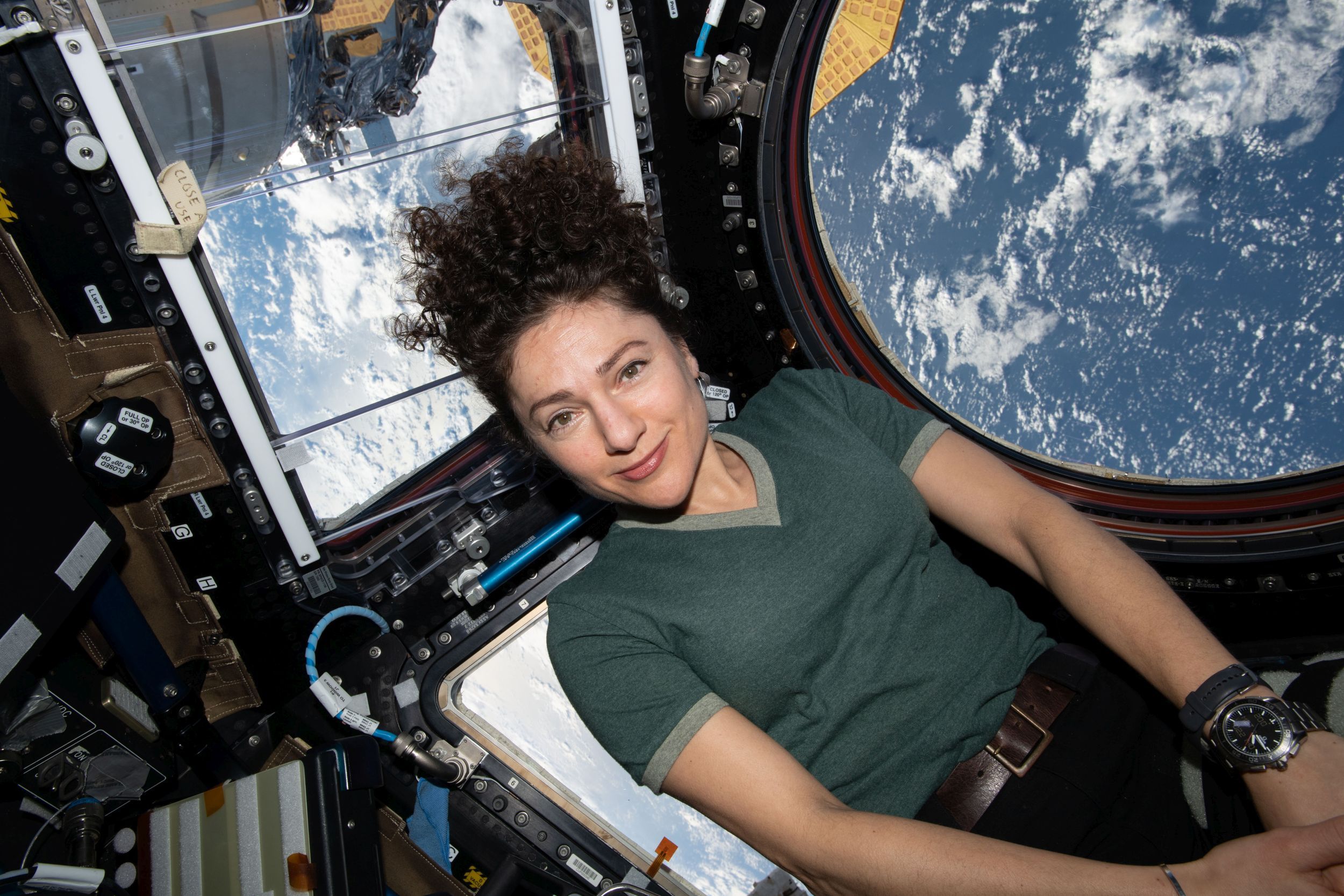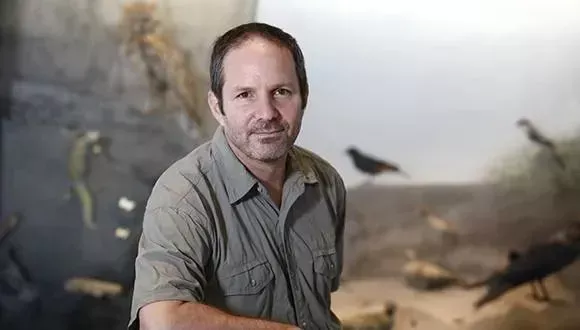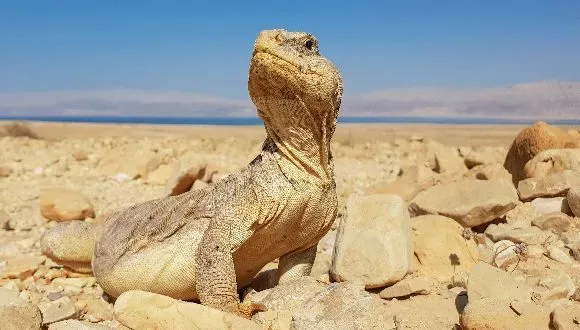
NASA astronaut Dr. Jessica Meir
Photo courtesy NASA
Between Climate Change, Space Research and Life under Extreme Conditions
“We have to work together to truly preserve our planet for the future,”
says Jewish-American trailblazer.
WATCH: Jessica Meir’s full speech at the 2021 TAU Board of Governors Meeting:
NASA astronaut Dr. Jessica Meir on Thursday addressed Tel Aviv University’s 2021 Board of Governors Meeting, discussing her missions to space, life under extreme environmental conditions, and the relationship between her research and combating climate change.
Meir, who is also a marine biologist and physiologist, delivered her remarks by live broadcast at the Yehiel Ben-Zvi Academic Symposium, entitled “Between Climate Change, Space Research and Life under Extreme Conditions,” held on the TAU campus. This year’s symposium topic highlights TAU’s prioritization of climate change research. As part of this campus-wide effort, TAU recently launched the Center for Climate Change Action.
Meir, the fourth Jewish woman and 15th Jewish person ever to travel to space, was born to a Swedish mother and an Israeli father, who grew up in Tel Aviv. During her virtual presentation to the symposium, Meir spoke of her connection to Israel and displayed several images of the country captured from outer space. “Israel is a very important part of me,” she said, also mentioning the personal items she brought to the International Space Station including an Israeli flag, Hanukkah socks bearing Stars of David and menorahs, along with a commemorative coin honoring late Israeli astronaut Ilan Ramon. Meir has celebrated her Jewish identity and ties to Israel on her widely followed social media accounts.
“We take a lot of photographs from the space station which can be used by scientists on the ground to see things like our changing planet,” said Meir from her current station in Houston, Texas. “By looking at things like the retreat of glaciers from the space station, at the same vantage point from which we’ve looked at for decades, scientists can make measurements and understand what’s going on with the ever-pressing battle with climate change.”
Answering a question from the crowd, Meir elaborated on the impact of space research on climate change.
“I’ve been an avid environmentalist since well before I got to space, and I assumed it would resonate even more loudly [once there]—and it really did,” said Meir. “You cannot avoid seeing how fragile it is, how special it is, and how we need to protect it. You don’t see borders from space, at least the ones we’ve imposed upon ourselves. We have to do what we can and work together to truly preserve our planet for the future.”
“Addressing the diverse challenges of climate change will require more than national policy.
It will require unprecedented collaboration across sectors and regions. It will also require joint, advanced research and studies. Space technologies can help in tackling major climate problems.”
In 2013, NASA selected Meir to join its highly selective astronaut program. During her first space mission in 2019, Meir and fellow NASA astronaut Christina Koch made history when they completed the first all-woman spacewalk. Meir has to date participated in three space missions and spent a total of 205 days in space. Among her many honors, Time Magazine named Meir as one of the 100 Most Influential People of 2020.
“I want to dedicate this talk and our time today to the crew of the Space Shuttle Columbia, and, of course, Ilan Ramon, the first Israeli in space who was part of this mission,” she said of the tragic 2003 accident in which all seven crew members perished.
In addition to Meir, Israel’s Minister of Environmental Protection and TAU alumna Tamar Zandberg spoke at the symposium.
“Addressing the diverse challenges of climate change will require more than national policy,” she said. “It will require unprecedented collaboration across sectors and regions. It will also require joint, advanced research and studies. Space technologies can help in tackling major climate problems.”
TAU Rector Prof. Mark Shtaif chaired the symposium that was moderated by Prof. Colin Price, Head of the Environmental Studies Department, Porter School of the Environment and Earth Sciences. The symposium is held in memory of Yehiel Ben-Zvi, a former TAU Vice President.
“There are many challenges, but also many opportunities to help us forge a more sustainable planet and have a cleaner, more just world for our children and grandchildren,” said Price. He explained that Tel Aviv University’s strides in combining space research and climate research include the multidisciplinary advances at TAU’s Center for Nano-Satellites and New Space, the Minerva Dead Sea Research Center, and the Center for Climate Change Action. As part of TAU’s national and global contributions, he added that the University will work with Eytan Stibbe, who is slated to become the second Israeli to travel to space next year.
TAU professors Dr. Ram Fishman, School of Social and Policy Studies, and Dr. Vered Blass, Porter School of the Environment and Earth Studies, concluded the symposium. They respectively spoke about tracking the effects of climate change on low income populations, and assessing the impact of new technologies on sustainability. They also explored the impact of COVID-19 on the environment.


